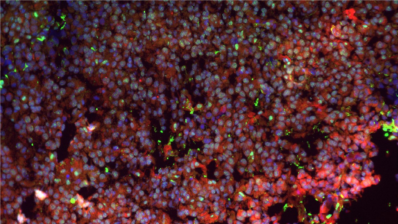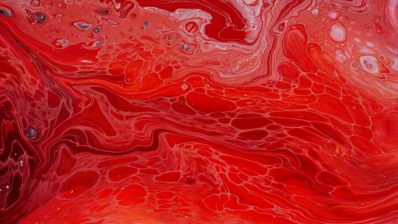Researchers from the Institute for Biomedical Research of Girona (IDIBGI) and Pompeu Fabra University (UPF) have conducted research on the role of proline in depression. The study has analyzed how this amino acid affects humans, mice and fruit flies and concludes that the relationship between a diet rich in proline and the intestinal microbiota can lead to a more depressive mood.
The teams led by José Manuel Fernández-Real and Jordi Mayneris-Perxachs from IDIBIG and Rafael Maldonado, from UPF and linked to the Hospital del Mar Medical Research Institute (IMIM), have studied how the amino acid proline affects the depressive state in humans.
To do this, the first step was to pass a questionnaire to measure the depressive mood in 116 patients from the Dr. Josep Trueta University Hospital, and to analyze the type and amount of amino acids in their diet. The most common amino acid among the most depressed patients was proline and the authors analyzed its plasma concentrations. The results showed that, although people with high proline concentrations tend to be more depressed, high intake of the amino acid does not always lead to high blood concentrations of this aminoacid. These findings led the researchers to think that the gut microbiota might play a role in proline transport to the brain.
Transplanting microbiota into mice and flies
The first step to test this was to transplant microbiota from study participants into mice, showing that the most depressed rodents were those that received bacteria from participants with high proline concentrations.
The second test was to analyze depressive mood in fruit flies (Drosophila) by introducing bacteria associated with proline consumption into their diet. It was observed that flies ingesting Lactobacillus –associated with less depression in mice– were more likely to overcome difficulties than those ingesting Enterobacter –associated with more depression in humans–. Finally, the elimination of brain proline transport channels in genetically modified flies resulted in individuals who were much more resilient to depression.
“The demonstration that microbiota transplantation transfers the depressive phenotype from humans to mice and generates alterations in proline transport indicates a possible causal association with depressive mood”
Rafael Maldonado (MELIS-UPF)
The study demonstrates that proline has an effect on the depressive state in humans, mice and flies. This discovery opens the door to new and more efficient diet-based treatment pathways for depression.
Mayneris-Perxachs et al., Microbiota alterations in proline metabolism impact depression, Cell Metabolism (2022). DOI: 10.1016/j.cmet.2022.04.001.







